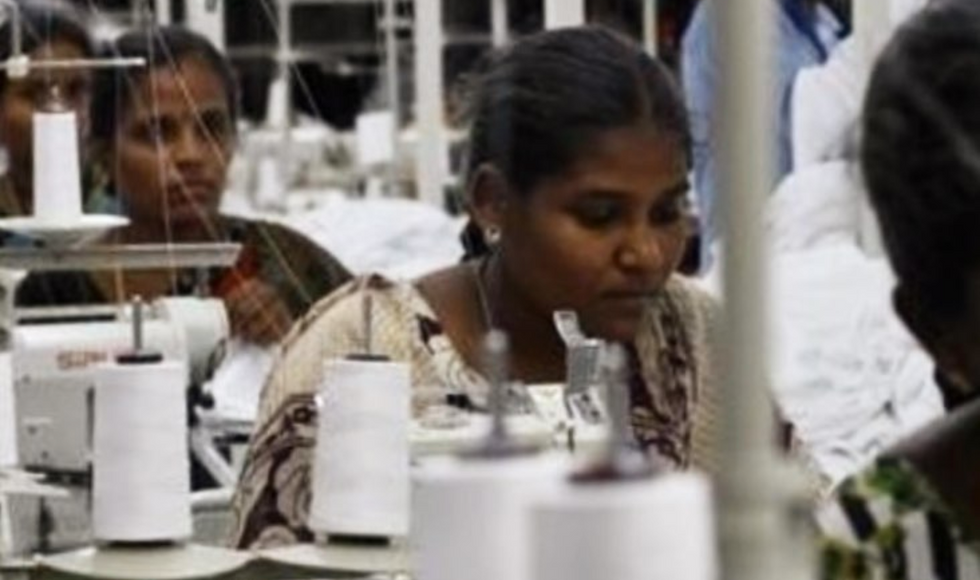Fast fashion describes companies that rapidly manufacture clothes to keep up with quick-changing trends. They constantly have new clothing on the shelves every season at a cheap price. This is possible through cheap labor. By outsourcing labor in poor, low-income countries, manufacturers constantly take advantage of workers and the environment.
Fast fashion companies not only pay workers less than the livable wage but work them on average seven days a week, up to 96 hours a week.
Workers work overtime and are underpaid.
If the company has a deadline, workers cannot refuse to work overtime, as they already barely have enough money to feed themselves since the wages are so low. The buildings where they work are quickly constructed due to demand and are unsafe, one collapsing and killing over 1000 in Bangladesh.
In addition, there is little ventilation, allowing garment workers to constantly inhale cotton dust and other toxic particles. Garment workers have higher rates of cancer and risk reproductive and fetal outcomes, as well as endocrine functions.
The workers are also disproportionately women, who often face sexual abuse and harassment.
The fast fashion industry also devastates the environment. Constantly having a new season of clothes on the shelves reinforces the idea that clothing is disposable and not made to last.
Fast fashion companies conveniently shift this environmental burden to lower-income communities. The textile dye is disposed of by being dumped into nearby rivers. Cotton production also requires large amounts of water and pesticides, which are simply flushed into nearby water systems.
Every year, about 500,000 tons of textile waste is exported to poor, low-income countries and deposited in landfills, where it will stay for thousands of years because polyester fibers are made of micro-plastics and cannot decompose.
Americans on average throw away 80 pounds of clothing annually.
We don't see the communities destroyed from this waste, but they exist. These countries are too poor to gain support or resources to enforce regulations for human and environmental safety.
Who is responsible?
Some big names in the fast fashion industry include Urban Outfitters, H&M, Zara, and Forever 21, although there are many others. These companies are known for their lack of transparency about the location of their supply chains as well as their inhumane and unsustainable manufacturing.
An investigation at H&M and gap factories revealed overwhelming reports of gender-based violence. Many women confessed they failed to report sexual abuse due to fear of retaliation in their workplace. Reports spanned across five different countries. The investigation only lasted five months.
You have been called upon to help.
Stop supporting the fast fashion industry. Decreasing demand will decrease the need for so many clothing factories, prevent further damage to the environment, and will pressure fast fashion brands and their inhumane, unsustainable practices. Here are 4 simple alternatives to help you become a responsible and sustainable shopper.
1. Start by minimizing impulse purchases.
If you do find yourself at the mall, ask yourself if you would actually wear the item you want to buy. If you can't picture yourself wearing it at least 30 times, try looking for a fast-fashion alternative. Minimize the impulse purchases.
2. Look to apps that sell secondhand clothing
Apps like Depop and Poshmark have a wide selection of used clothes from people all over the world. By purchasing used clothing, you are saving all the resources wasted on mass clothing production.
3. Visit local thrift stores
Thrift stores are another great way to find unique clothing, save money, and shop ethically.
4. Invest in sustainable brands
This is a pricier alternative, but it is out there for those who can afford it. Sustainable brands such as Reformation, Everlane, and Patagonia make quality, long-lasting clothing. Investing in these brands allows you to contribute to a company that stands for humanity and protecting our environment.
We have all unconsciously contributed to the fast fashion industry, but it is time to stop turning a blind eye to the consequences.
We are still a part of this global injustice. It's time to detox our fashion.






















